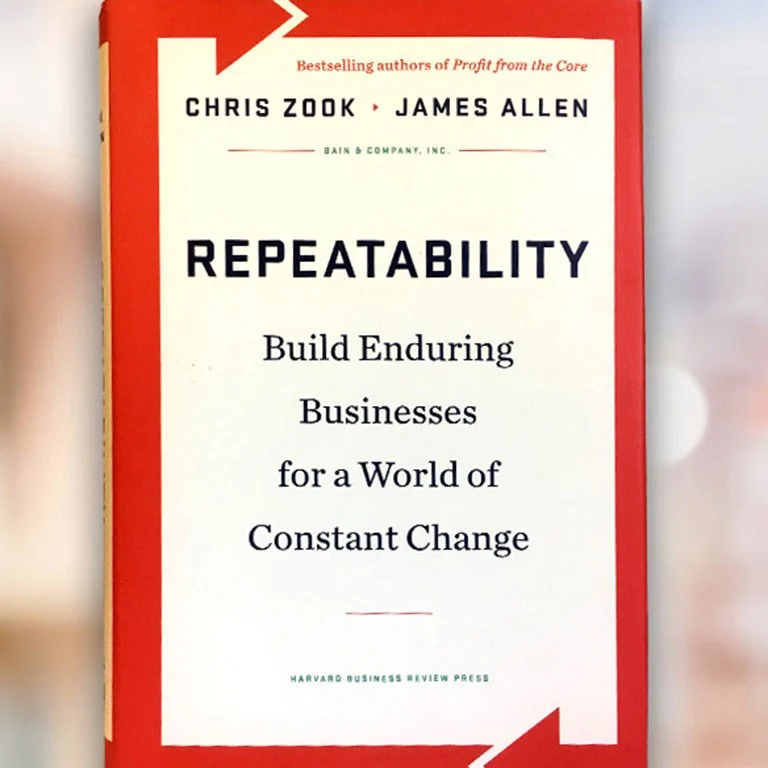HBR.org
The following post originally appeared on the Harvard Business Review Blog Network.
Admiral Lord Nelson, Britain's famous naval leader, owed his enviable record of victories to the ability of his officers to make synchronized decisions in the heat of battle without communicating directly.
These commanders, personally trained by Nelson, he called his "band of brothers" and they took the right decisions because they knew what he would do in their shoes. By projecting his key principles of decision making and his strategy out to the front line Nelson created a faster and more adaptable Royal Navy that regularly overwhelmed far larger enemies.
Few businesses are like Nelson's Navy. Rather than speeding up their decision-making, they're slowing down. Of course, they're doing it with the best of intentions.
Here's how it works. In an effort to cover all the bases in an uncertain, changing world companies are trying to give themselves as many strategic and organizational options as possible. In doing so, however, they are making themselves unconsciously more complex organizations. It is a trend that's slowly and silently killing them. Complexity turns people inward and distorts information flow, slowing the pace of decision-making down and making the decisions themselves increasingly incoherent.

Repeatability
Learn more about how executives use Repeatable Models® to build enduring businesses.
How can leaders prevent this from happening?
To find the answer to that question I attended a session on leadership at the World Economic Forum in Davos. It was led people by who have devoted their career to this topic and included Daniel Goleman, coiner of the term "emotional intelligence." What emerged was a consensus that the most successful leaders in the future will be those who—like Nelson—can cut their distance to the front line through three key traits: the ability to be authentic, empathy with the customer and front line, and true self-awareness.
As I sat through the session, I realized that these principles meshed closely with the work that my Bain colleague Jimmy Allen and I had been doing in strategy. We have just completed a three year study at Bain & Company that identified the "design principles" of businesses that outperform and out-adapt their rivals. We called these principles the "Great Repeatable Model" because companies whose business models embodied the principles were able to replicate their successes over and over again.
Let's review what the two sets of principles have in common:
The first design principle, the "principle of focus" demands a clear source of differentiation at the core of a business that can be replicated and adapted over and over to new situations, markets, applications—because differentiation is how you make money in business. Typically, 80% of a company's managers believe their company has this differentiation. But only 8% of their customers agree. This is a huge gap and it demonstrates that managers are fooling themselves. This is where the leadership principle of authenticity comes in. It is all about being able to recognize this gap and find ways of really delivering something different to the customer.
The second design principle, the "principle of embeddedness" is the ability to hard wire the key values that should drive decisions and behaviors all the way to the front line routines that touch the end customer and end product. This is also not that easy. In fact, over 60% of employees in the average company say they have no idea of the strategy or its key principles. Imagine if that were true for a marching band? This is where you need a leader who is genuinely empathetic and in touch with the concerns of front line employees and seen as one of them. A leader like this can define the strategy through the language, incentives, measures, and capabilities of the people executing it.
The third design principle, the "principle of adaptability" is the ability to turn the rate of learning into a competitive advantage through the way a company measures quality and performance and how it interprets what it finds. Central to this is self-awareness and a willingness to question core assumptions. It starts with brutal honesty: competitors will catch up, customers will raise their standards and the old repeatable model will need to be a better repeatable model to win tomorrow.
The close concordance of our business model design principles with the principles of great leadership explain why so many of the Great Repeatable Models of the companies we studied also had Great Repeatable Leaders who successfully steered their businesses through a number of transitions, continually repeating their success in adjacent markets and product categories.
Interestingly, quite a number of these were family companies such as IKEA, Tetra Pak or Enterprise Rent-a-Car. Here closeness to the front line was baked into the DNA of the successive managers and where a sharp differentiation was central to the reason for existence of the company. We also saw these characteristics in some of the instances where a CEO restored struggling companies to former glories (Lego and P&G, for example). In all these cases the CEOs refocused on a rejuvenated version of the core differentiation and drove that focus down into the day to day routines of the business by listening and paying close attention to the front line.
Bottom line: Great Repeatable Models need Great Repeatable Leaders and Great Repeatable Leaders need Great Repeatable Models. Companies choosing leaders and leaders choosing companies take note.
Chris Zook is co-head of the Global Strategy Practice at Bain & Company. He is co-author, with James Allen, of the upcoming book: Repeatability: Build Enduring Businesses for a World of Constant Change (HBR Press, March 2012).